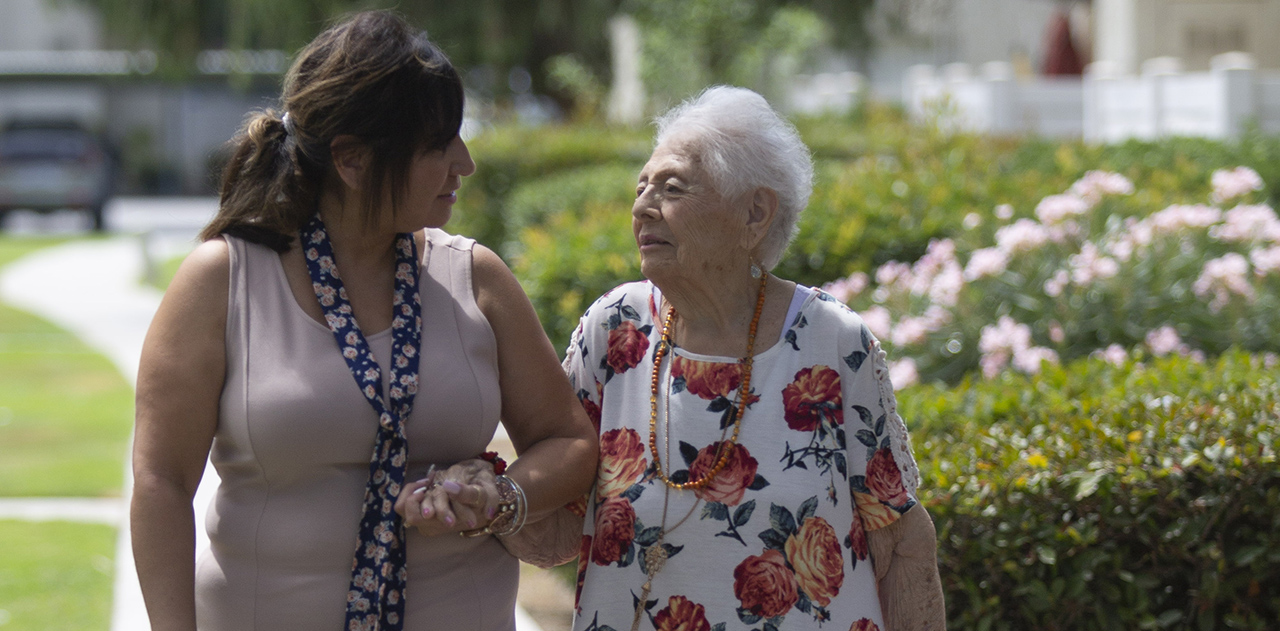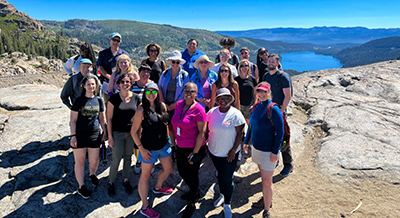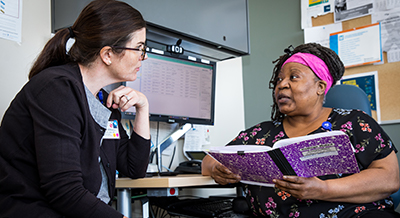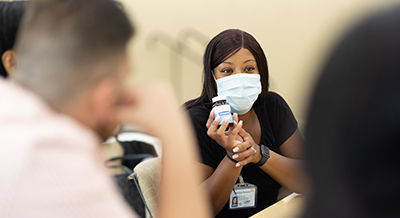About one in five Americans provides care to a family member. The complexity and intensity of caregiving for older adults and people with disabilities is increasing, as the population ages and more individuals are living longer with physical, cognitive and mental health challenges.
For caregivers in California who tap into a statewide network of support organizations, the care they provide is more complex than the general population of caregivers. And they are at higher risk of mental and physical health decline.
Those are findings from a 2022 report from the Family Caregiving Institute at the Betty Irene Moore School of Nursing at UC Davis working in conjunction with the Family Caregiver Alliance.
“Our evaluation shows that these resource centers serve clients at a higher risk when compared to the general population of caregivers,” says Janice F. Bell, Family Caregiving Institute Director at the School of Nursing and co-principal investigator. “They are engaged in more intense care, longer hours and increased responsibilities. They also report more adverse physical and mental health effects from their caregiving role, including isolation and loneliness.”
During the second year of the $30-million “Picking Up the Pace of Change: Scaling Services for a Changing Caregiver Profile” report, the data showed that 90% of those surveyed were providing complex and intense care. Other notable findings of those surveyed include:
- 72.9% spent more than 40 hours per week providing care
- 35% reported worsening health over the past year
- 35% were lonely
“This study is one of the first in the nation that we’re aware of with this size and this diversity, consistent with the diversity of California along many dimensions. It’s humbling to see the findings of the intensity of care in our sample,” explains Heather M. Young, co-principal investigator and institute associate director for strategic partnerships.
The study gathered information to help the Caregiver Resource Centers (CRCs) prioritize outreach and service for those most in need. The project team also deployed an interactive platform, CareNav™ to promote uniform quality and availability of core services statewide.
“While challenging to deploy the online platform during a pandemic, we found it was a program that really met the needs and enabled many caregivers to get support and services they would not have been able to access with social distancing,” Young adds.
“To have someone see me and say, ‘Hey there’s actually help for you too,’ I thought, ‘Wow, I’ve got to check this place out,” says Simone Nazzal, a CRC client. “I was really pleased to be connected with a family consultant who plugged me into the exact services that I needed in that moment to maintain my sanity and to continue doing this for my mom.”
The research team next hopes to look at the risk profile of the caregivers that are served by the CRCs and examine whether they can identify risk factors for poor outcomes and intervene more quickly. Rounding out the investigative team are Director of Research Administration Jennifer Mongoven, former postdoctoral scholar Tina Kilaberia, staff member Benjamin Link and Family Caregiving Institute Faculty Affiliate Robin Whitney.






